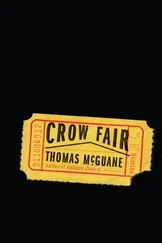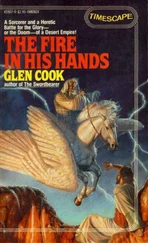‘She went there every Saturday and Sunday at around ten in the morning,’ Esther told him. ‘I’m always at work by then, but I know that’s when she leaves.’
‘Is your daddy usually there?’
‘Yes.’
‘And you spend time with her on the weekend?’
‘Yes.’
‘Did she seem okay when she came back on Saturday?’
‘She seemed the same,’ Esther said. ‘That night she went over and heard Dr King.’
‘Who did she go with?’
For a moment she hesitated to answer. ‘With me,’ she said finally. ‘We walked over to the church together. Does that change anything?’
‘No,’ Ben said. ‘Did you come back home together?’
‘No,’ Esther said. ‘She was with a group of her friends from school. I walked back home and went to bed. The next morning I went to work. When I got back, my daddy said that Doreen hadn’t come back from the Davenports’.’
‘And that was late Sunday afternoon?’
‘Yes.’
‘Did you call the Davenports?’
‘Yes, I did.’
‘What did they say?’
‘Mr Davenport wasn’t there,’ Esther told him. ‘But his wife said that he’d taken her home himself.’
‘And we’re still talking about Sunday afternoon?’
Esther nodded. ‘I asked all around Bearmatch. I didn’t go to work on Monday. I kept trying to find her. I thought she might have stayed with a friend, something like that. I went over to her school and asked around. I tried my best. I even asked one of the men who was organizing the kids for the march.’
‘Which man?’
‘Leroy Coggins,’ Esther said. ‘I think he must be in jail now. Just about everybody on the march is in jail.’
Ben was about to ask another question when someone knocked at the door. He stood up and opened it. Mr Jeffries was standing quietly behind the screen.
‘I saw you was home,’ he said. ‘I thought you might be up for a game of checkers.’
‘Not right now,’ Ben said.
Mr Jeffries’ eyes peered to the right, then widened as he caught sight of Doreen.
‘Oh,’ he said with surprise. ‘I didn’t realize you had somebody with you.’ He leaned toward the screen and lowered his voice conspiratorially. ‘Is she a prisoner?’
‘No,’ Ben told him. ‘She’s helping me with a case.’
Mr Jeffries looked at him, amazed, but said nothing.
‘Maybe later tonight,’ Ben said. ‘That game of checkers.’
Mr Jeffries backed away slowly, edging himself toward the end of the porch. ‘No, no,’ he said, his eyes leaping back toward Esther, then settling once again on Ben. ‘That’s all right. Don’t trouble yourself. I’m sorry to interrupt.’ He turned quickly and made his way down the walkway, his thin, spindly legs scissoring rapidly toward his house across the street.
‘Now, about that girl,’ Ben said as he returned to his seat.
‘I shouldn’t stay here,’ Esther said nervously.
Ben looked up at her. ‘Why not?’
‘All the reasons you already know.’
‘This is police business,’ Ben told her.
‘That doesn’t matter,’ Esther said. ‘Some things go beyond that. Some things go a long way beyond that.’
Ben looked at her determinedly. ‘This is my house. I own it. I pay the taxes on it. Whoever I ask in can stay as long I say so, Miss Ballinger, and there is nothing in the world beyond that.’
‘Yes, there is,’ Esther said.
‘What?’
‘Me. What I want. And I don’t want to stay here.’
‘All right,’ Ben said wearily. He pulled himself heavily to his feet. ‘Where do you want to go?’
‘Home,’ Esther said, but without conviction or affection, as if Bearmatch were nothing more than a little patch of earth where she’d been set down and kept in place by the force of an immense and unrelievable gravity.
Esther’s house looked like almost all the others in Bearmatch. Its unpainted wood had turned dark gray, and large patches of rust spread out across its tin roof. The front porch slumped downward toward the unseeded front yard, and two of the three wooden steps that led up to it had broken years before and never been replaced. Flaps of torn screen hung from its sideposts, and several slats were missing from the splintery rail that ran along its edges. A large Double Cola thermometer had been nailed to the front door, and as Ben stepped up to it, he noticed that its thin red line stopped at the number ninety-two.
‘My daddy goes off during the day,’ Esther said as she opened the door. ‘He comes home when it suits him.’ She swung the door open and stepped away. ‘Come on in.’
The floor creaked loudly as Ben stepped inside the house. For a moment its bleakness overwhelmed him. There was a shaky rocking chair in one corner and a small sofa in the other, its springs entirely visible beneath the worn upholstery. A stack of unpainted apple crates leaned uneasily from the far wall, and just in front of it, two sawhorses supported a single sheet of plywood.
‘That’s the dining table,’ Esther said. ‘In case you’re wondering.’
Ben looked at her. ‘I figured it was.’
‘I’m not crying over it,’ Esther told him. ‘I’m just pointing it out.’
Ben glanced about. ‘Where do you want me to sit?’
Esther nodded toward the sofa. ‘Right there,’ she said. ‘I’ll put the coffeepot on.’
Ben eased himself down onto the sofa and waited. Outside the front window, the air was graying steadily, and the cool breeze that wafted through it seemed already heavy with the coming rain. From time to time, he could hear the casual talk of various people as they passed by the house, but they seemed very far away. Only the front room was near at hand, and he let his eyes drift around it like a languidly weaving smoke. There was a small portrait of Jesus on the Cross on one wall, and an enormous calendar advertising The Alabama Bank and Trust Company on the other. In between, there was only the blank wooden wall, its uneven slats rising unsteadily toward a huge square beam. An enormous old coal stove sat in the center of the room on a base of tightly placed red bricks. Its black funnel rose like a crooked finger to the roof and then passed on through a circular hole in the sheeted tin. Thick gobs of whitish caulking sealed the space between the flue and the roof, and some of it had cracked with the heat, peeling away in slender strips which now fluttered slightly in the summer breeze.
The adjoining room looked much the same, and Ben could see its bare walls clearly from his place on the sofa. An iron bed rested against the far wall, flanked on either side by two overturned apple crates. A small plastic ashtray sat on top of one of the crates, a kerosene lamp on the other. The wall behind it was bare, except for a magazine page which had been taped to it, a blurry color poster of a Negro singer, complete with ruffled shirt and light-blue tuxedo, his hands wrapped passionately around a microphone as he crooned into it.
‘That’s Doreen’s room,’ Esther said as she handed Ben a cup of coffee. ‘You want to see it?’
‘Yes.’
He followed her into the room and allowed his eyes to sweep it. Despite its bare essentials, it was undoubtedly the room of a young girl. A small metal shelf held a few old dolls, a game of Chinese Checkers and a tiny plastic record player.
‘She liked Smokey Robinson,’ Esther said as she nodded toward the poster. ‘She liked them all. Elvis. Little Richard. I think she wrote them letters.’ She shook her head. ‘From the way she acted, you’d of thought she could hear them.’
Ben’s eyes snapped over to her. ‘What?’
‘Oh my,’ Esther said softly. ‘You couldn’t have known, could you? Doreen was deaf. She was born that way. She never heard a thing in her whole life.’
Читать дальше












